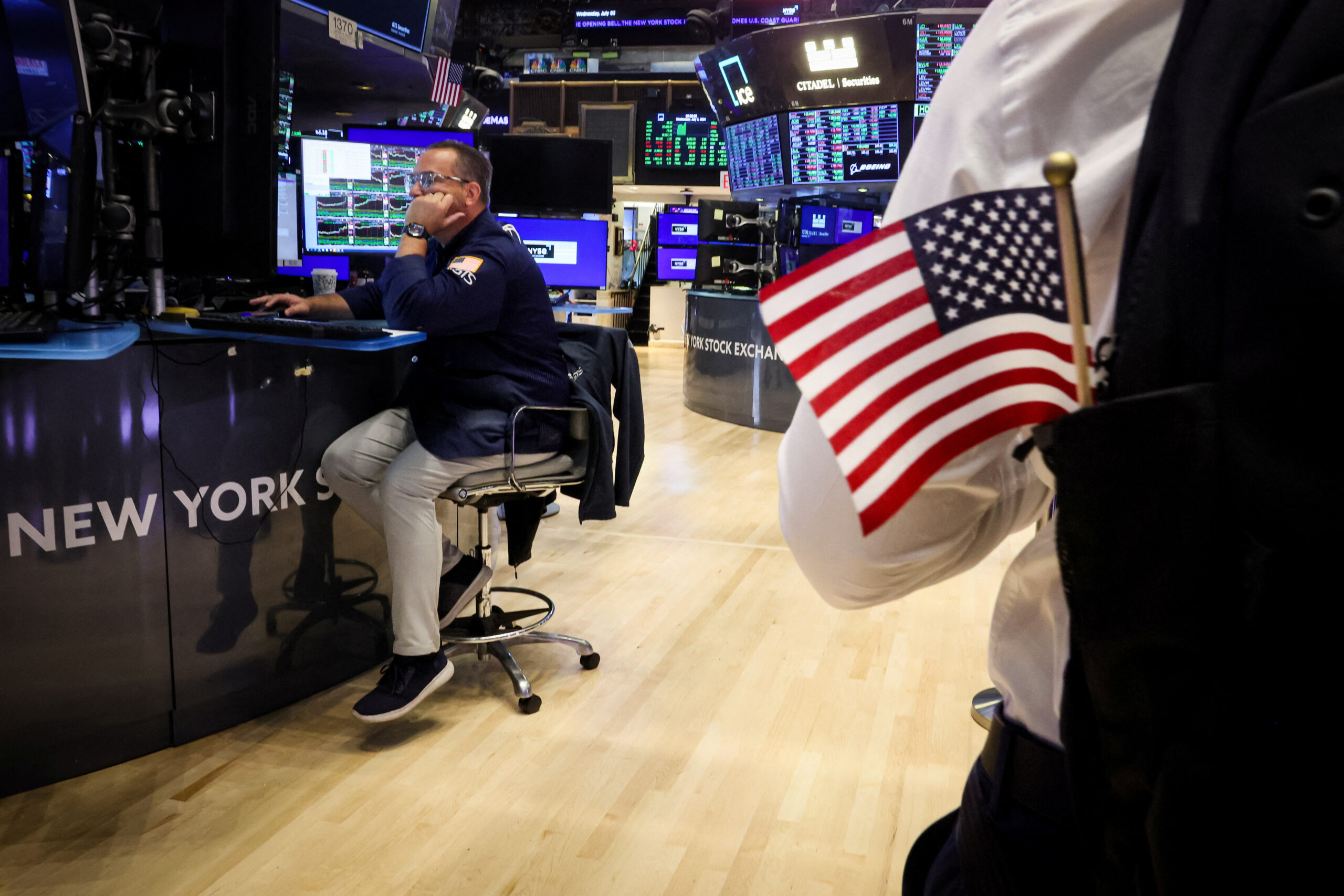
- Indices
- Stocks
S&P 500 declines as Nvidia shares fall
Do you want to know how to make money from this?
Register for free and get expert advice, access to a training course and webinars.
Key points:
- The S&P 500 ended lower, with the tech sector leading the decline.
- Nvidia, a key player in the artificial intelligence space, weighed heavily on the market ahead of its earnings report.
- Investors are keeping a close eye on inflation data and Fed statements.
Monday ended with a decline in the S&P 500 index. Notably, Nvidia, a key player in the field of artificial intelligence, contributed significantly to this decline. Its shares fell ahead of the release of its quarterly report, scheduled for this week. Simultaneously, investors were anxiously awaiting data on the inflation rate in the economy, as this data directly affects the likelihood of further interest rate cuts by the Federal Reserve.
The S&P 500 index decreased by 0.32% and closed the session at 5616.84 points. The Nasdaq index fell by 0.85% to 17725.77 points, while the Dow Jones Industrial Average rose by 0.16% to 41240.52 points.
Expectations for Nvidia
The Nasdaq technology index also showed negative dynamics. Meanwhile, the Dow Jones Industrial Average managed to maintain a positive trend, ending the trading session with approximately a 1% gain.
Nvidia‘s shares dropped by 2.25% ahead of the financial report release on Wednesday, making this event the most anticipated on the U.S. stock market this week. Some investors expressed concerns that any results not meeting the highly optimistic forecasts for Nvidia could lead to a sharp decline in the stocks of AI-related companies such as Microsoft, Alphabet, and Meta Platforms.
Jake Dollarhide, CEO of Longbow Asset Management, warned of potential disappointment, noting that when market expectations reach extremely high levels, the likelihood of negative surprises increases.
On Friday, the S&P 500 index approached historical highs amid statements from Federal Reserve Chairman Jerome Powell about the possibility of interest rate cuts due to decreasing inflation risks.
The expected July consumer spending data, which is a key inflation indicator for the Federal Reserve, could provide additional insights into the future trajectory of monetary policy.
Most other stocks also declined
Of the eleven sectors that make up the S&P 500 index, six showed negative performance. The most significant decline was recorded in the information technology sector (-1.12%) and the consumer discretionary sector (-0.81%).
At the same time, the energy sector grew by 1.11% amid reports of oil supply disruptions and rising oil prices due to geopolitical tensions in the Middle East.
Shares of PDD Holdings, the owner of the Temu platform, plummeted nearly 29% after financial results that failed to meet market expectations.
Tesla lost 3.2% of its market value after Canada imposed a 100% tariff on the import of Chinese electric vehicles.
Boeing’s shares declined by 0.85% following the selection of SpaceX as the contractor for returning astronauts to Earth.
Do you want to know
How to make money from the news
Register for free and get:
- Expert consultation;
- Access to the training course;
- Opportunity to participate in webinars

